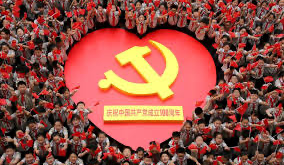China under the leadership of President Xi Jinping proposed the Belt and Road Initiative (BRI) in 2013, which finally kicked off in 2014, with the aim of improving connectivity and cooperation on a transcontinental scale. This would be achieved by rolling out infrastructure which would connect China to other economic centres in Europe, the Middle East, Africa and beyond. The network connects three continents and passes through more than 65 countries with an estimated population of 4.4 billion.
BRI in Africa is not only limited to infrastructure but involves other tenets like trade, finance and investments, ecological and environmental protection, tourism, cultural, social and educational exchanges and productive capacity linked to Agriculture and manufacturing.
The significance of BRI for Africa goes beyond improving connectivity and cooperation. It directly addresses some of the important goals of African Union’s agenda 2063. Through its agenda 2063, Africa focuses on economic growth and stability through industrialisation, poverty reduction and public health of its citizens, citizenry social welfare as well as agriculture infrastructure modernisation.
Africa Union’s Agenda 2063 includes the following as part of the goals to be achieved:
A High Standard of Living, Quality of Life and Well Being for All Citizens with the priority area of job creation and improved income for its citizens;
World Class Infrastructure which criss-crosses Africa where the priority area in this case is communications and infrastructure connectivity.
It is evident that these goals and their priorities are directly addressed by the BRI thus assisting Africa in the road to achieving its agenda 2063.
As of April 2019, there were 40 African countries that had signed to be part of the BRI and projects had started in most of these countries. This constitutes over 70% of African countries that are poised to benefit from BRI.
An estimated more than 600 million people in Africa are said to have no access to electricity. The advent of BRI in Africa has set up addressing power generation as one of the projects being embarked on. While 30% of the China’s investments in Africa has been dedicated to modernising Africa’s transport infrastructure, power generation and transmission has attracted a whopping 40% of investments. This will go along way in addressing the access to electricity and will also boost economic development. Power and transport are investments that boost economic growth.
According to World Bank reports, when completed, BRI transport projects could reduce travel times along economic corridors by 12%, increase trade between 2.7% and 9.7%, increase income by up to 3.4% and lift 7.6 million people from extreme poverty. This responds directly to African Union’s agenda 2063.
Kenya is constructing the Standard Gauge Railway (SGR), which is a project that falls within the BRI framework. The project has been dubbed the country’s biggest project since independence. The first phase of the SGR, connecting the coastal city of Mombasa to the capital city Nairobi was completed ahead of schedule in 2017. The opening of this railway is said to have shortened the trip between Mombasa and Nairobi from ten to five hours and created 46,000 jobs for Kenyans. It is also indicated that since the launch of this railway in 2017, the freight cost has been lowered by 79 percent and the cost of doing business has been lowered by a whopping 40 percent in just two years.
One of the biggest hindrance to Africa’s development has been inadequate infrastructure which has in most cases relied on roads if they are available. Most of these roads in Africa are laid with gravel and sometimes rendered impassable during heavy rain seasons. This does not only delay goods from moving from one point to another but raises the cost of doing business as well. The advent of BRI therefore, can be seen to assist Africa with the transportation problem that has been a setback to development for quite a long time.
The Ethiopia-Djibouti Railway which started operations in 2018, has managed to bring down the journey turnaround from three days to 14 hours. This has not only made it easier for the movement of goods and people faster, but has created spinoffs where various business ventures have developed along the route.
Africa has been for a long time reliant on loans and grants from western donors. These loans have seen very little development of what Africa needs but rather what the donor needed. Africa is slowly but surely moving away from approaching financial donors with a begging bowl in hand to looking for equal partnerships in financial support on business terms. BRI has helped Africa to fulfil this need where loans, investments and grants are not secured under the master- servant relationship, but under equal partnership where Africa maintains her dignity. Chinese loans to Africa generally have comparatively low interest rates and long repayment periods.
In his virtual meeting with African leaders during the “Extraordinary China-Africa Summit on Solidarity against Covid-19” on 17 June, China’s President Xi Jinping announced Chinese interest-free loans that are maturing in 2020 will be written off. Interest-free loans only make up roughly 10% of the total Chinese lending to the continent. This definitely is good relief to Africa during such difficult time and this emanates from a relationship that has been built on the BRI. Those who still view China-Africa relationship as a “debt trap” to Africa, are either short sited, naïve or deliberately ignoring the reality of Africa’s problems and its needs.
The Belt and Road Initiative, has shown China to be a strategic partner to Africa, delivering on Africa’s desperately required infrastructure financing in terms of loans and other investments in order to improve its regional trade and the BRI offers exactly that.
Mr. George Nsamba is a risk management practitioner
Based in Johannesburg South Africa
For Comments or Opinions, please contact us at, africachinareview@gmail.com
 Africa -China Review Africa -China Cooperation and Transformation
Africa -China Review Africa -China Cooperation and Transformation
